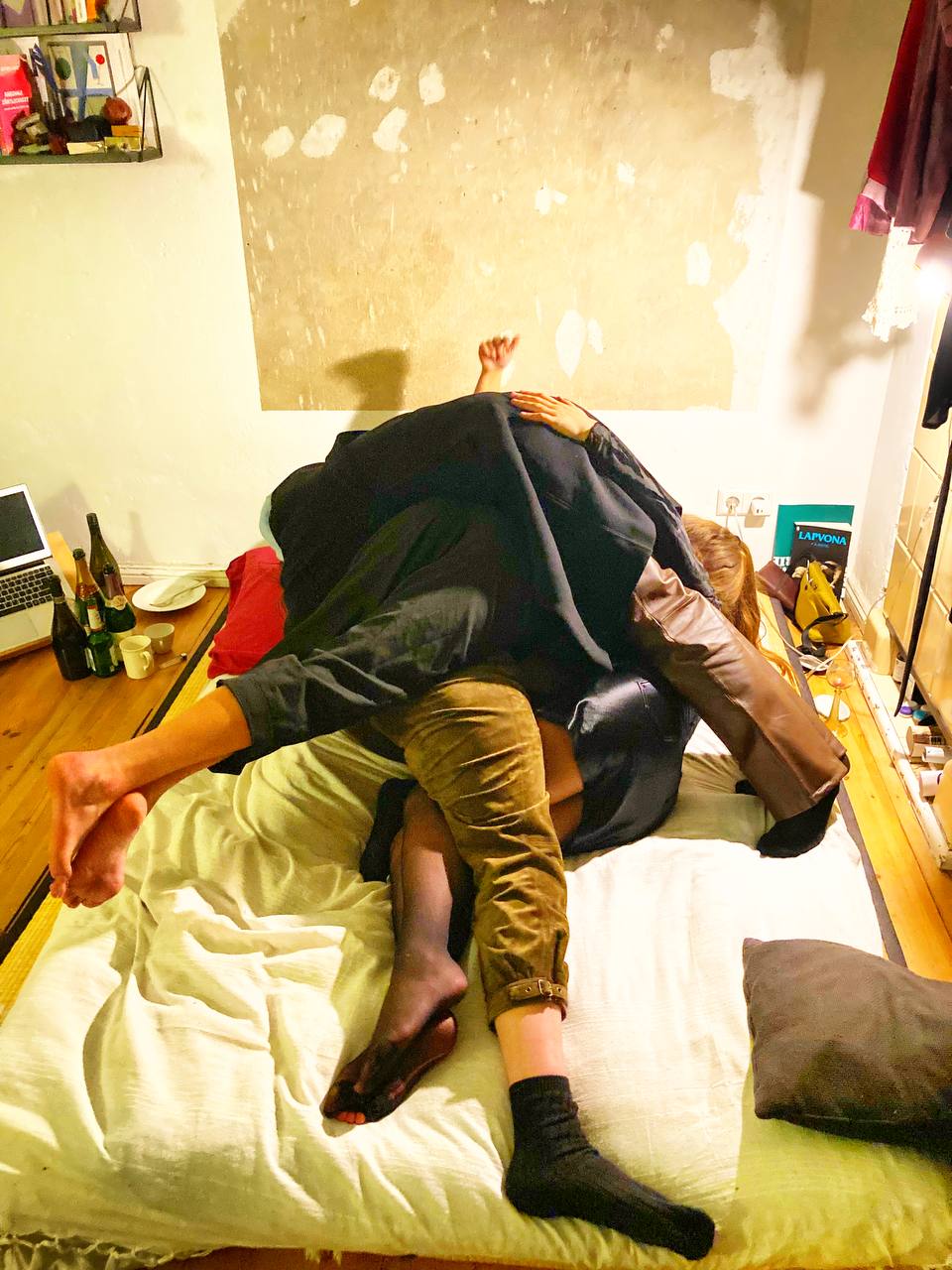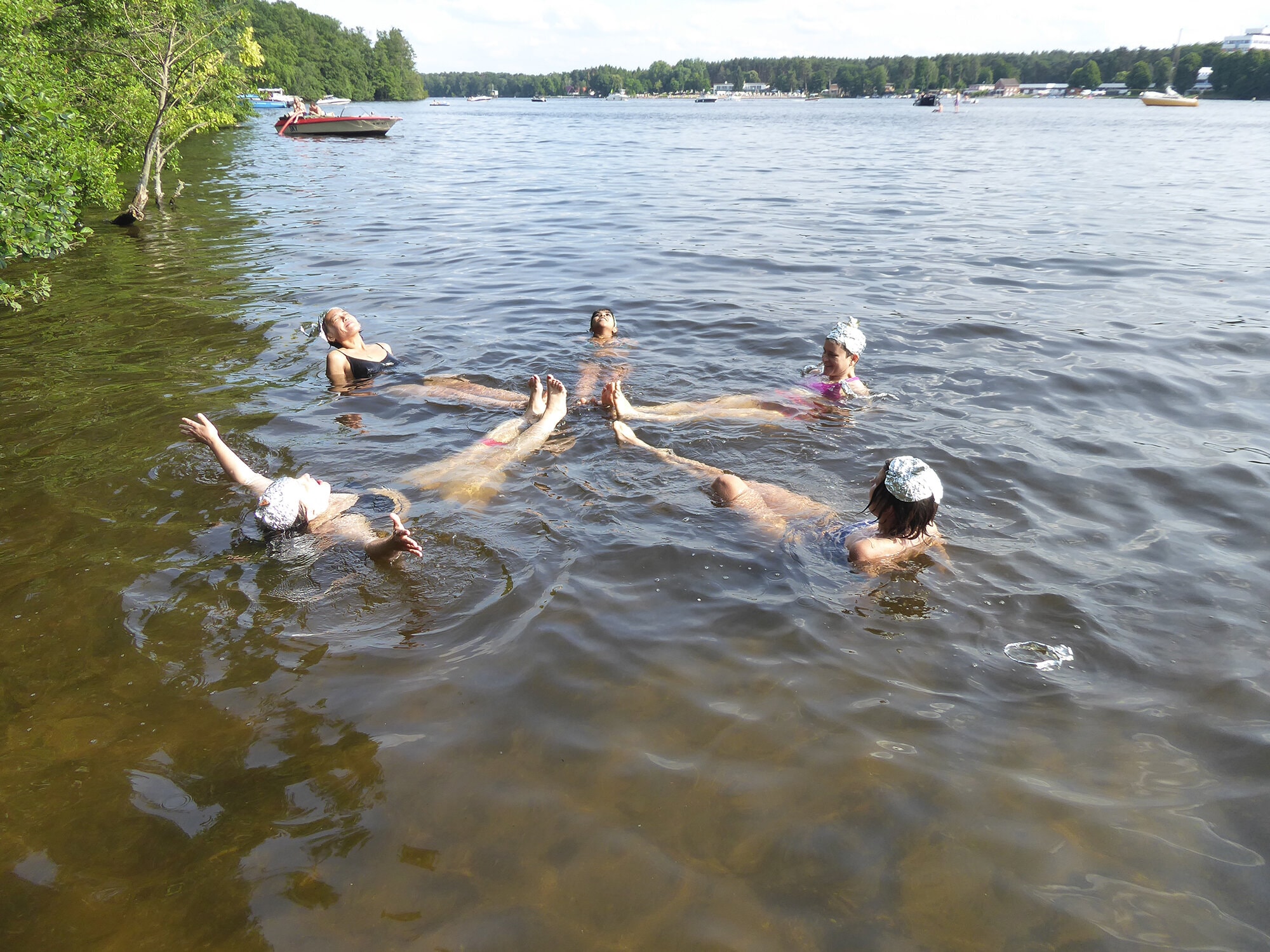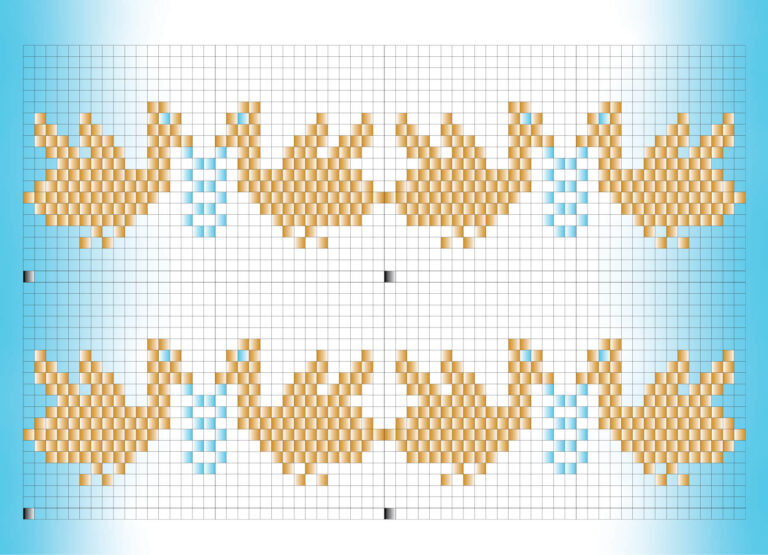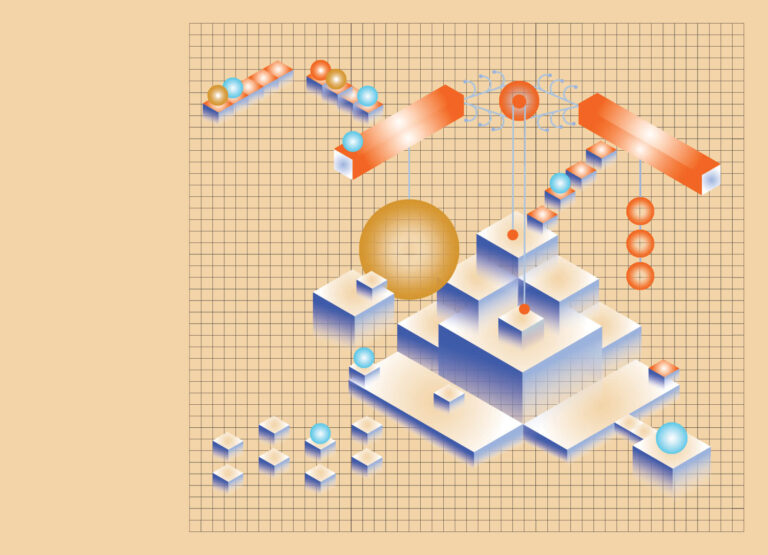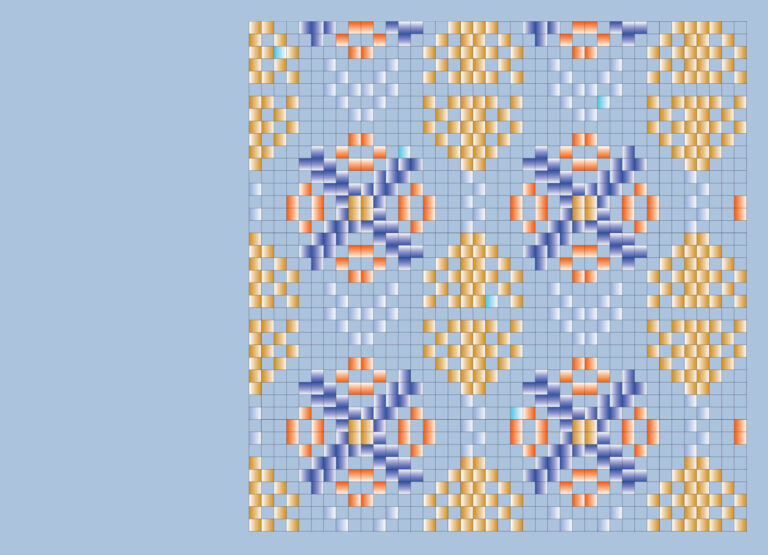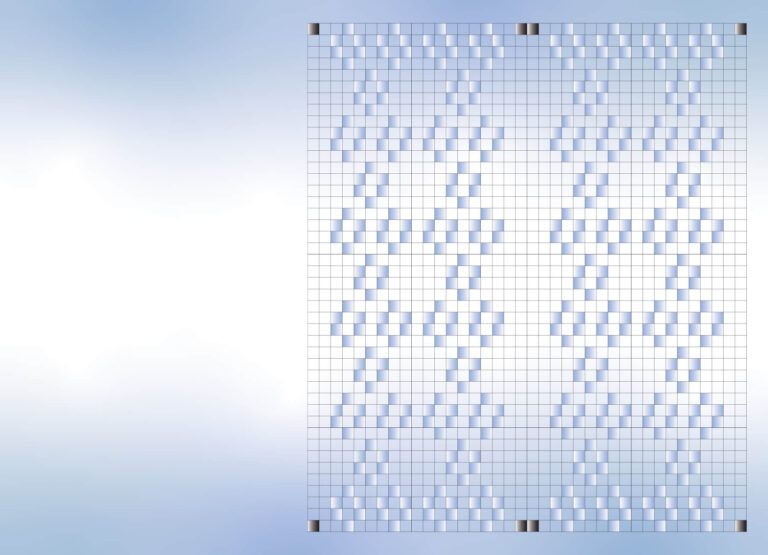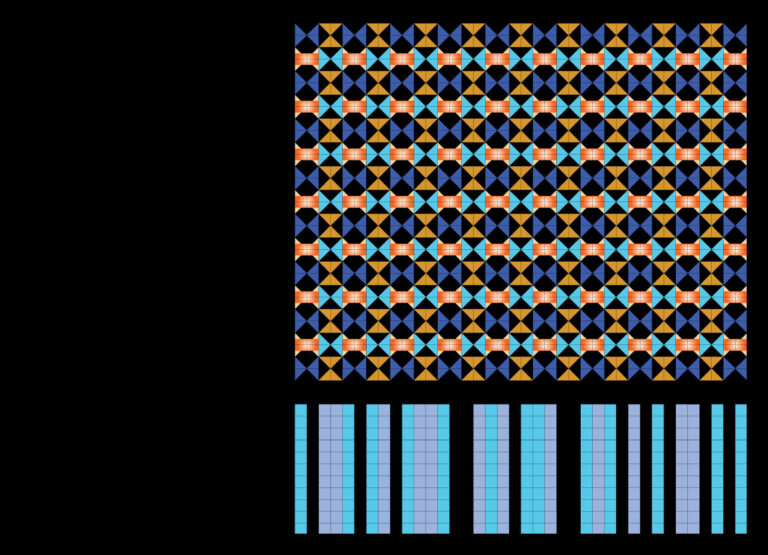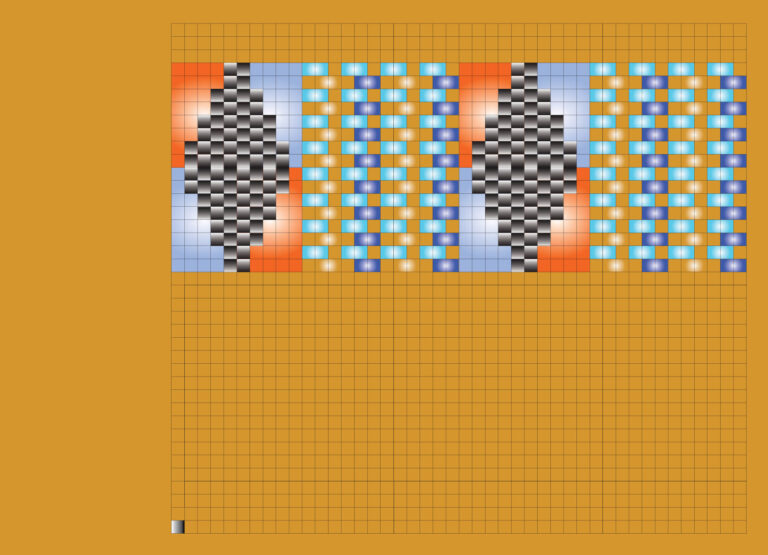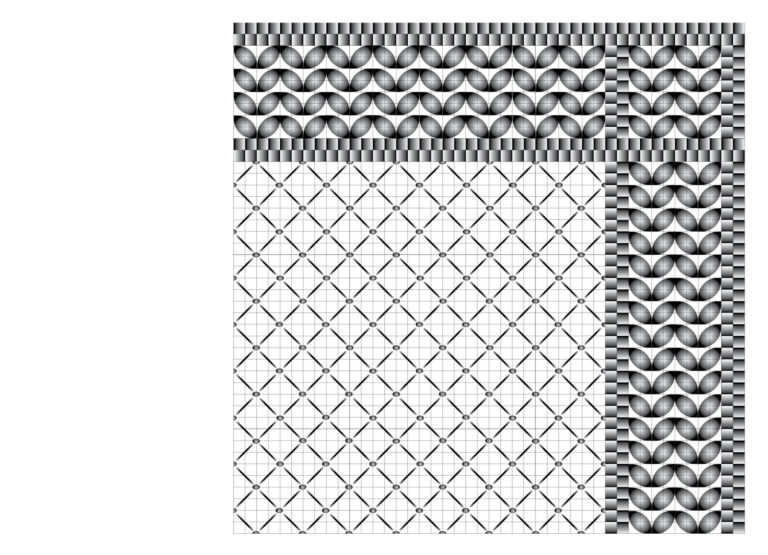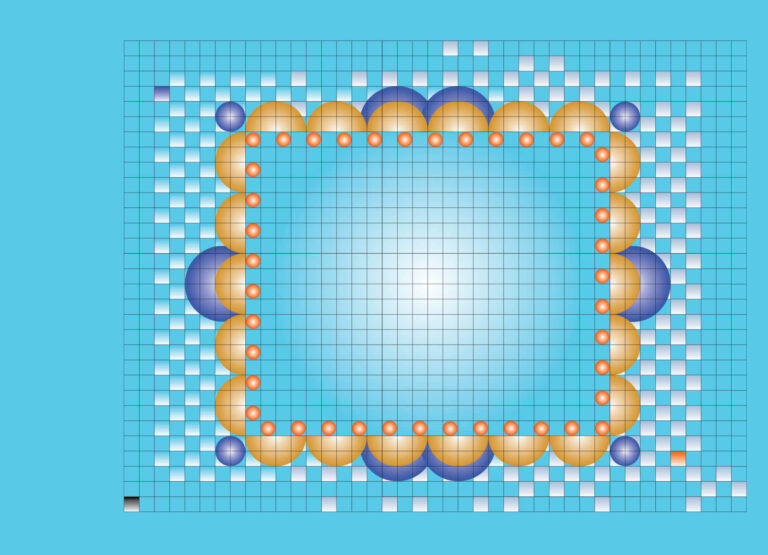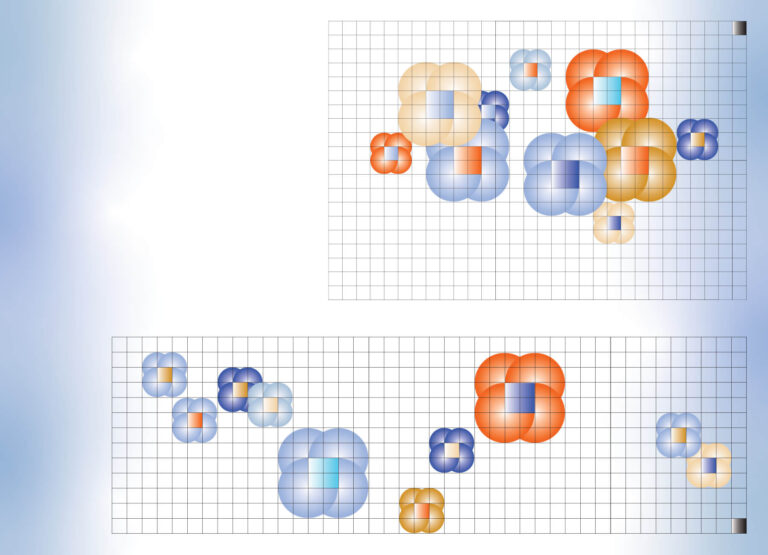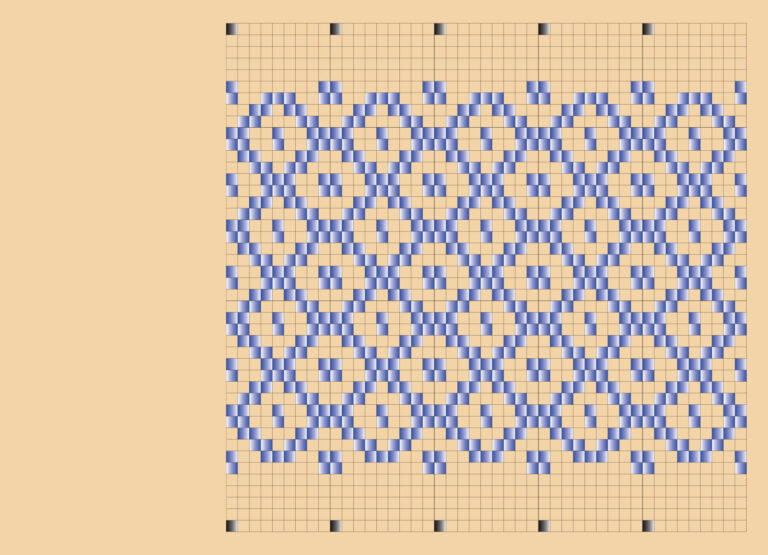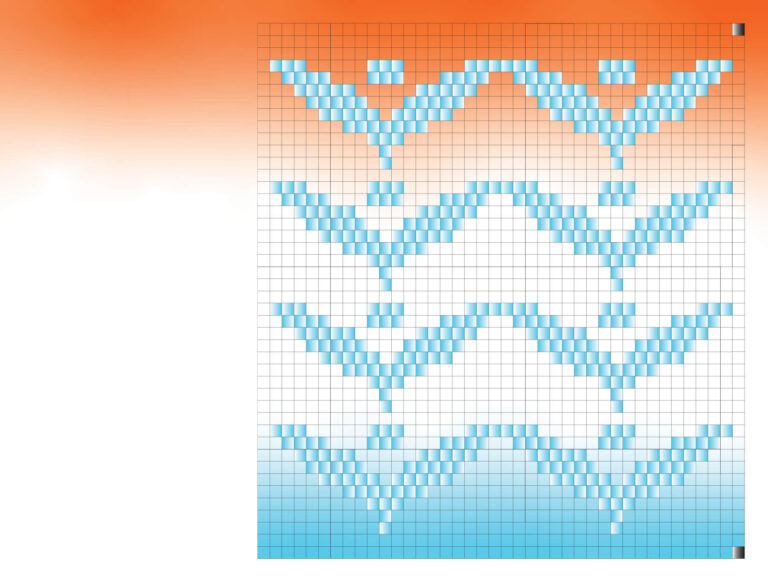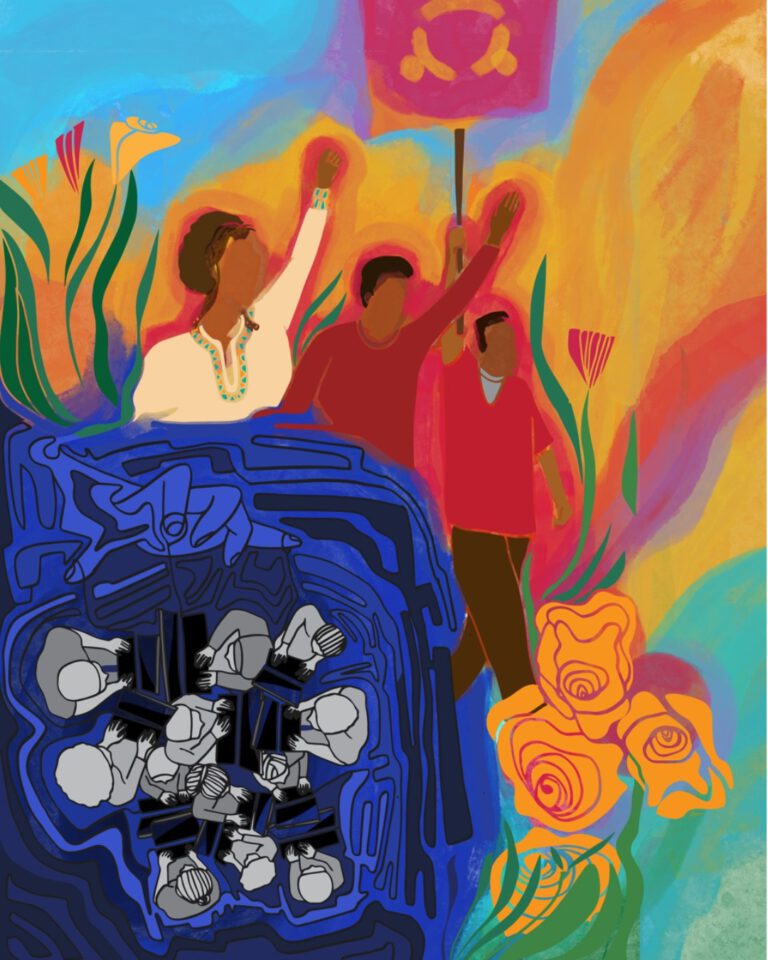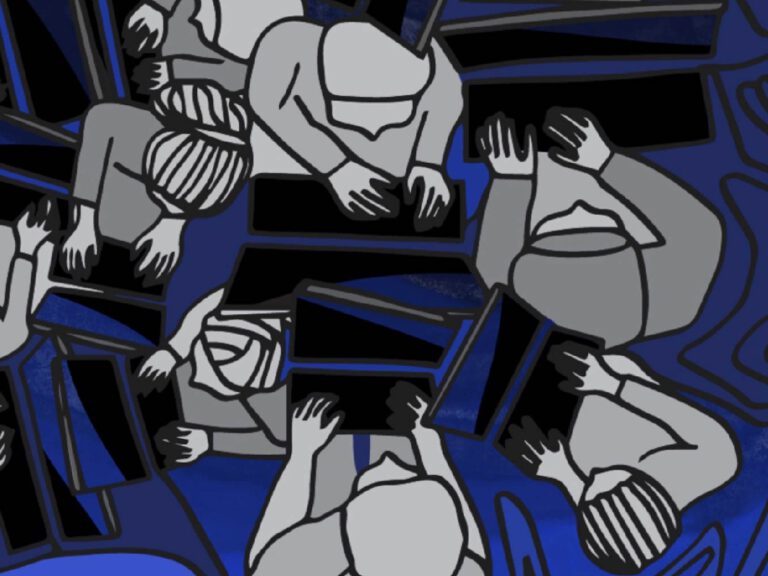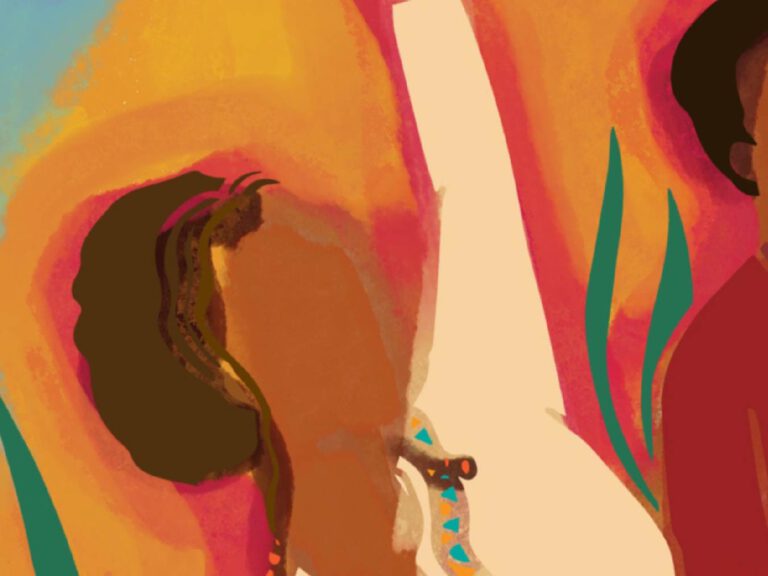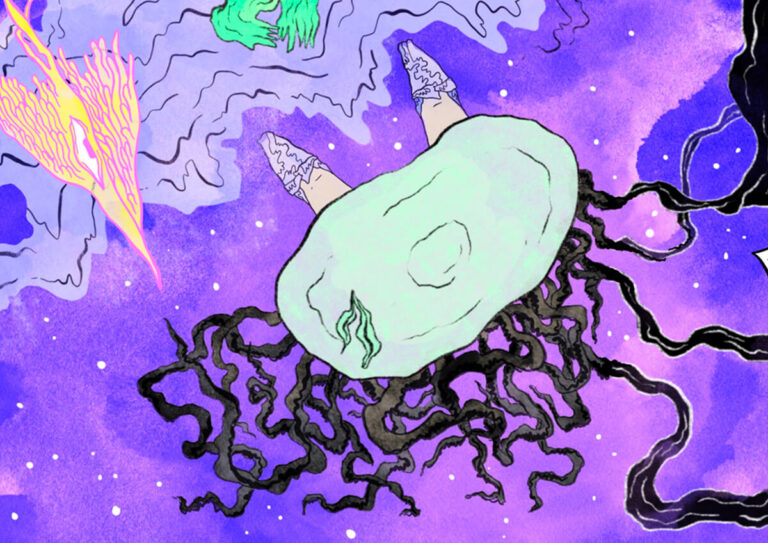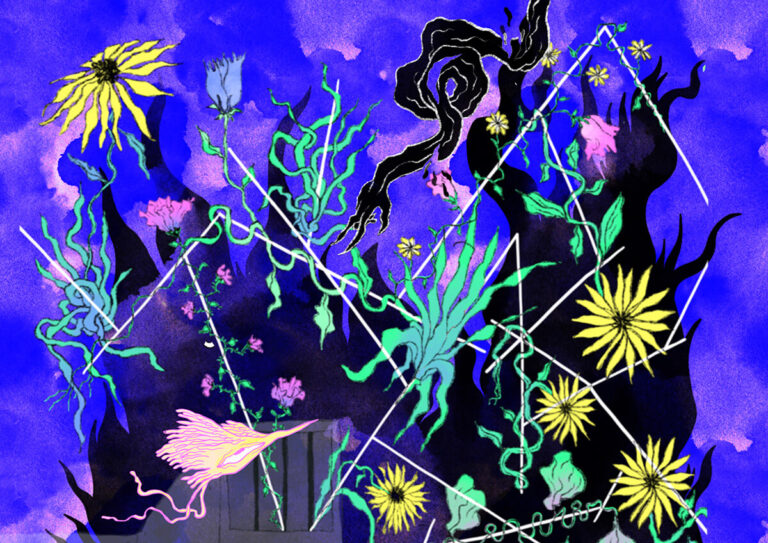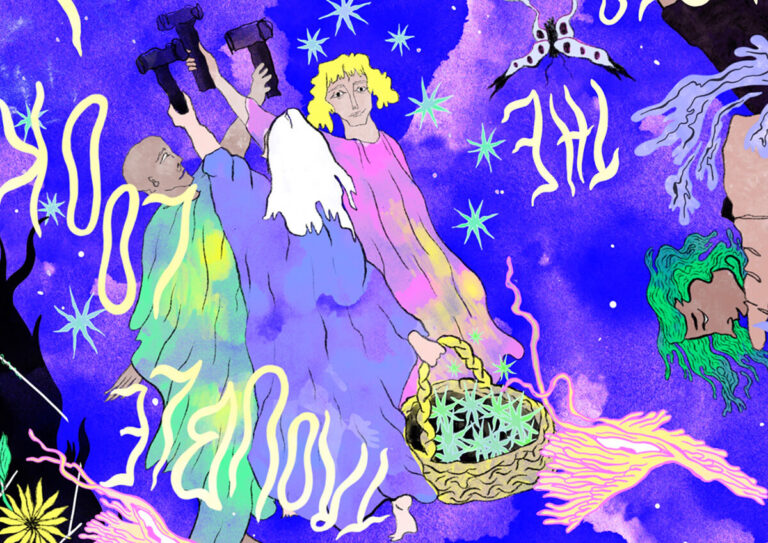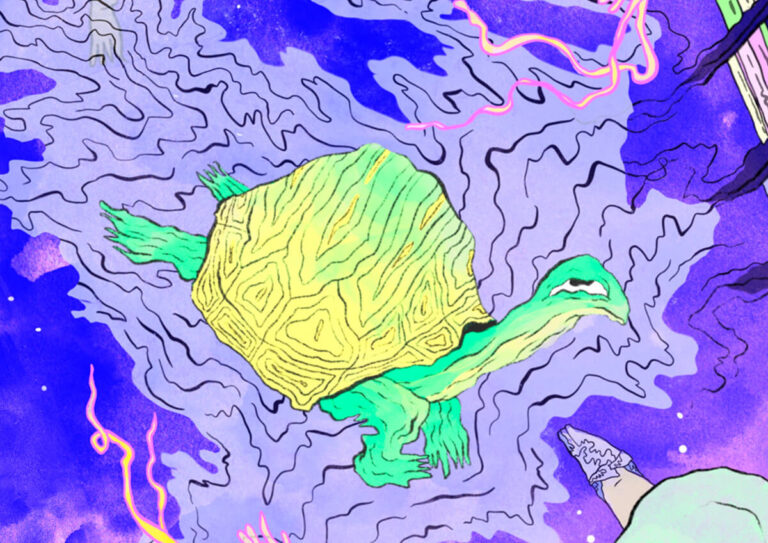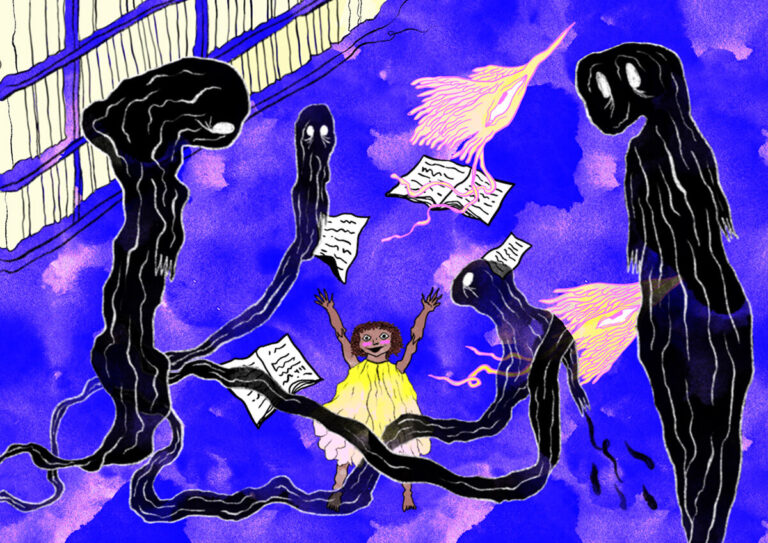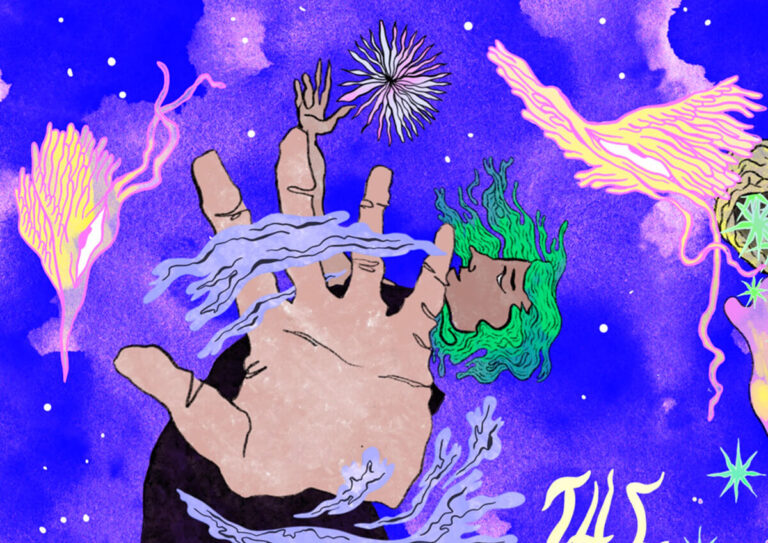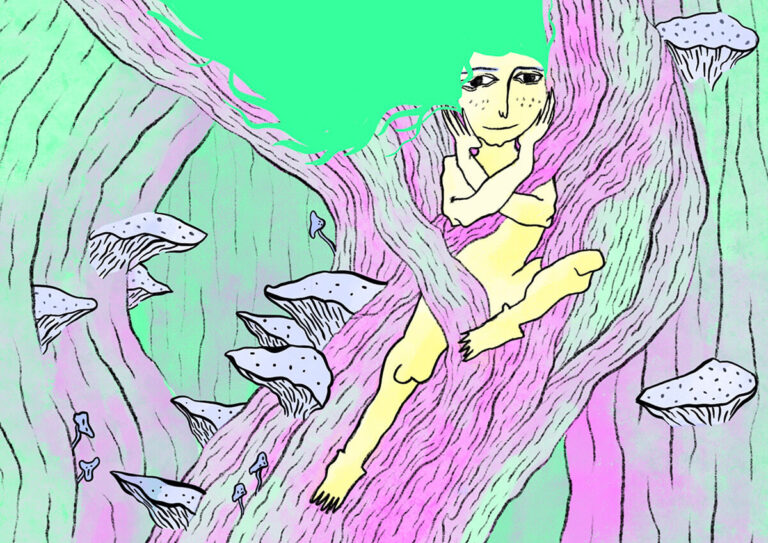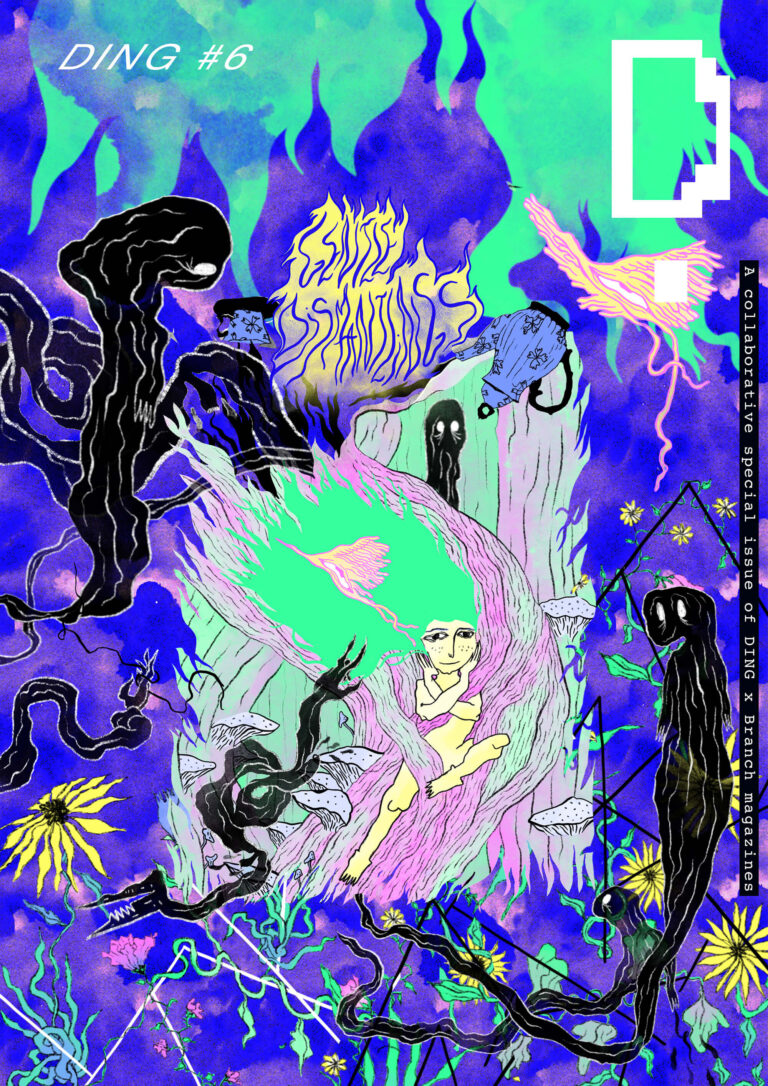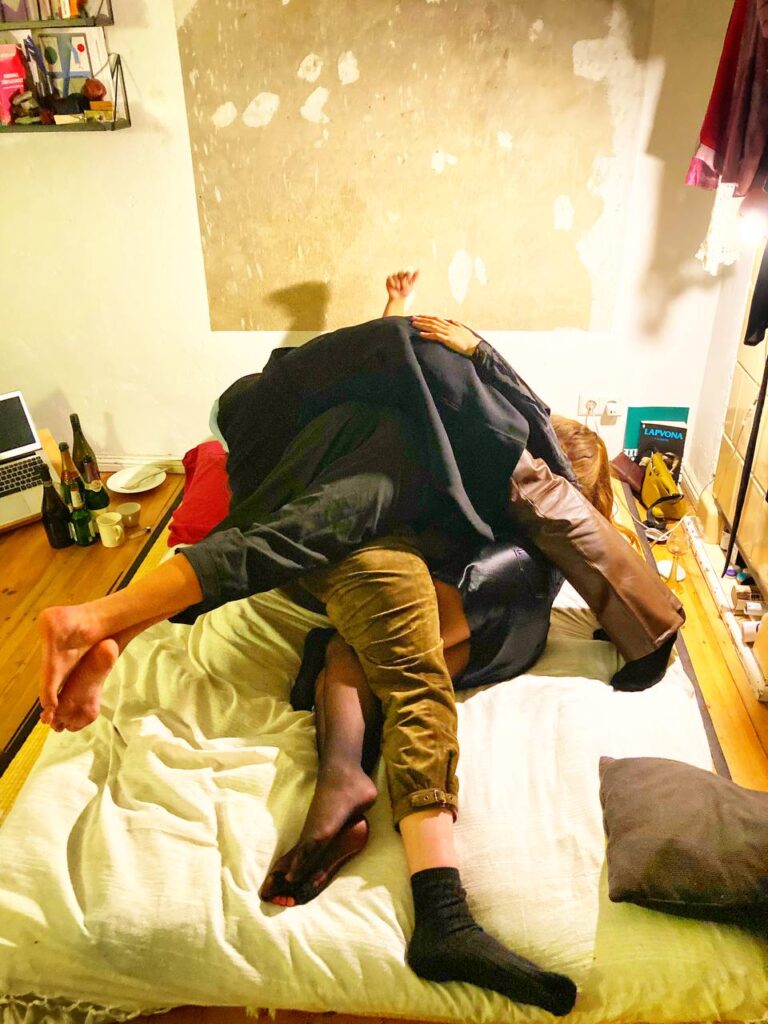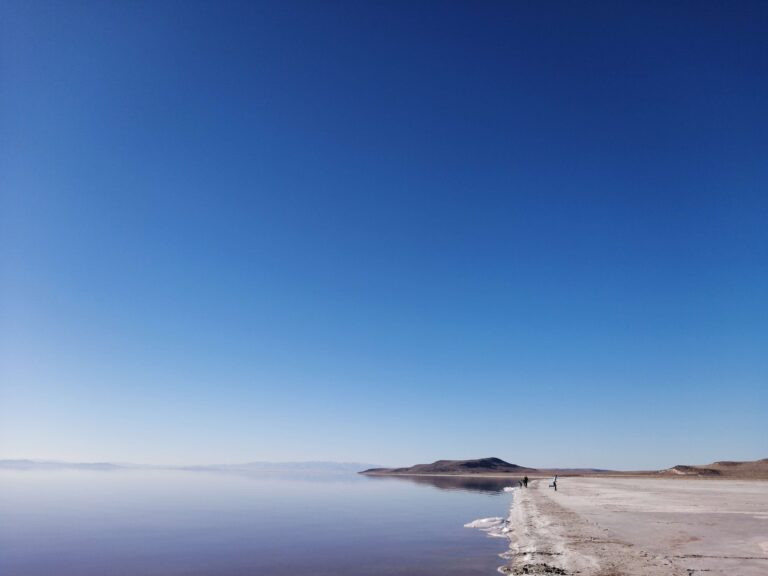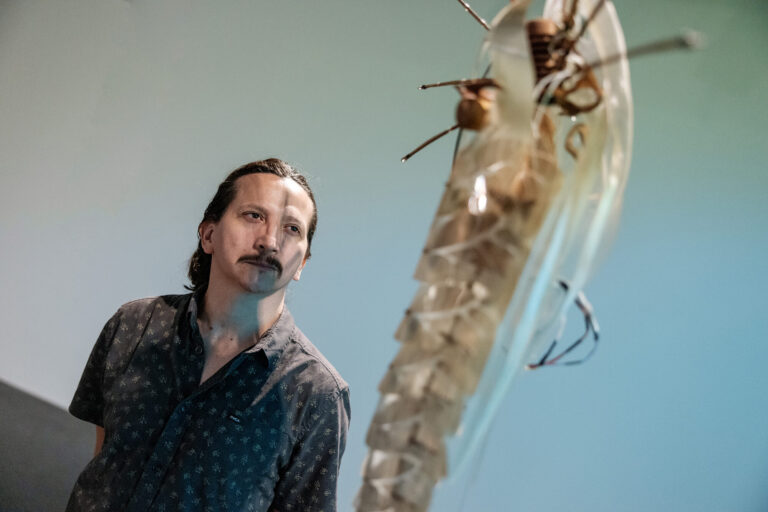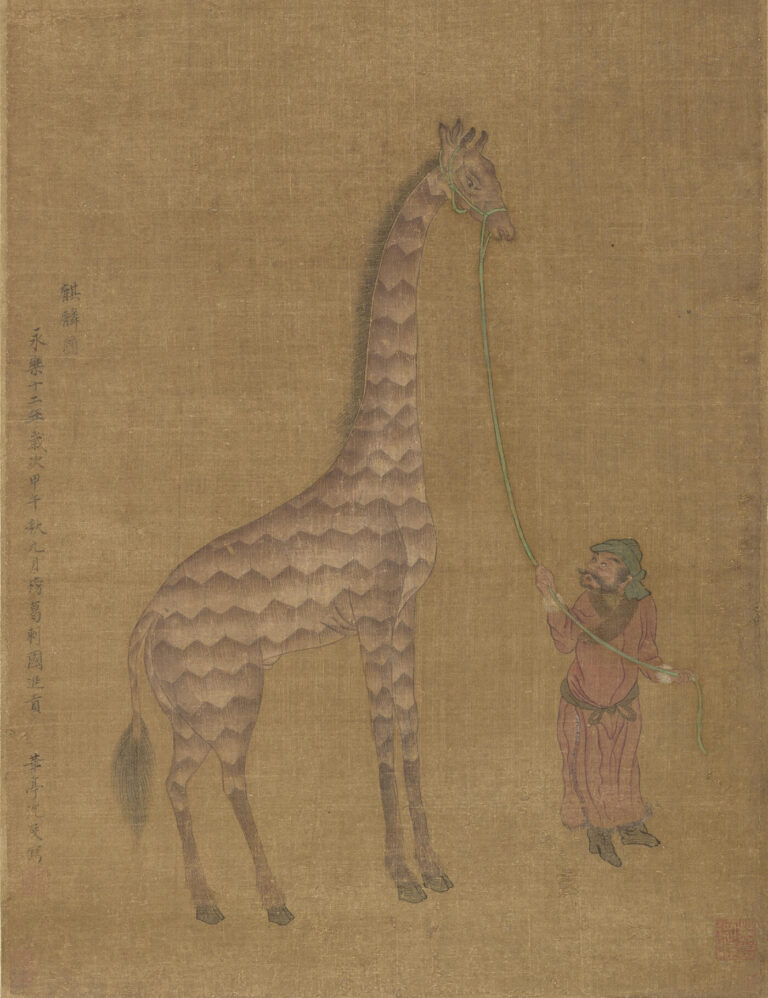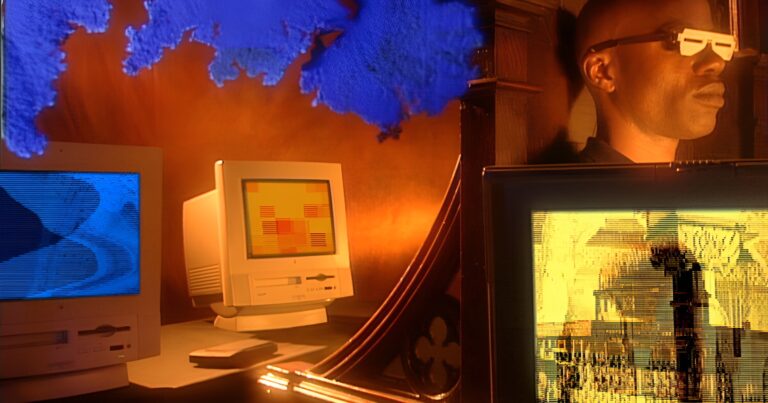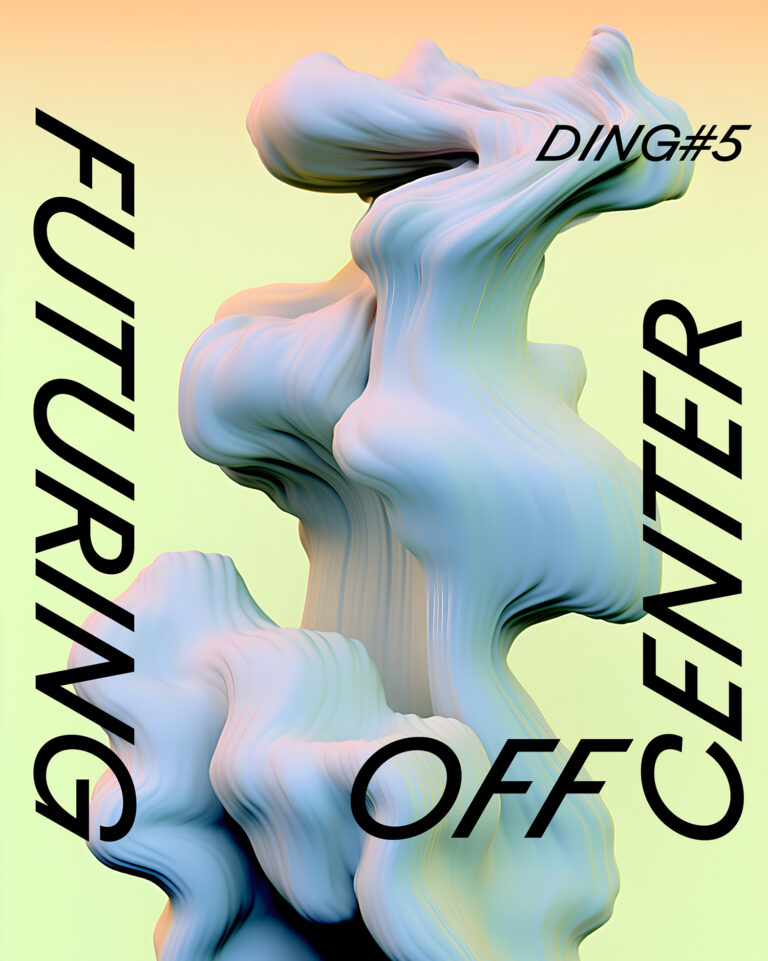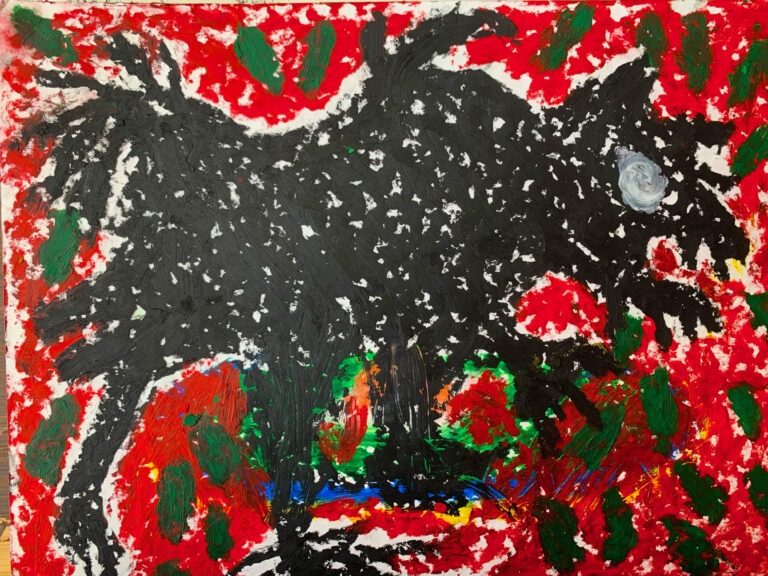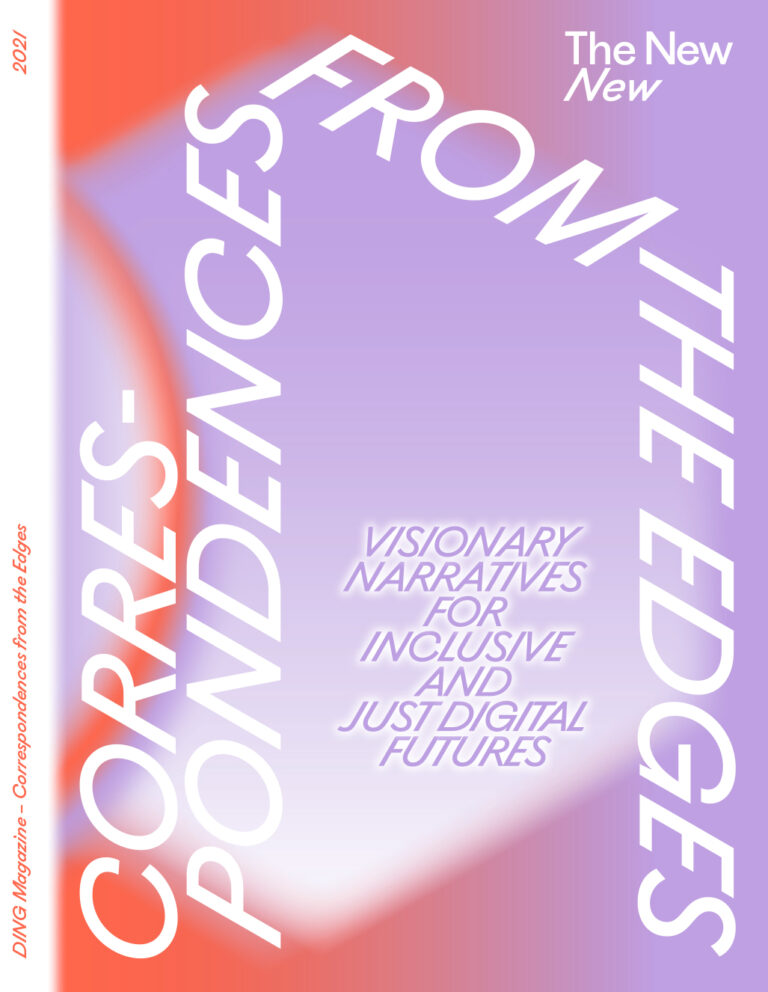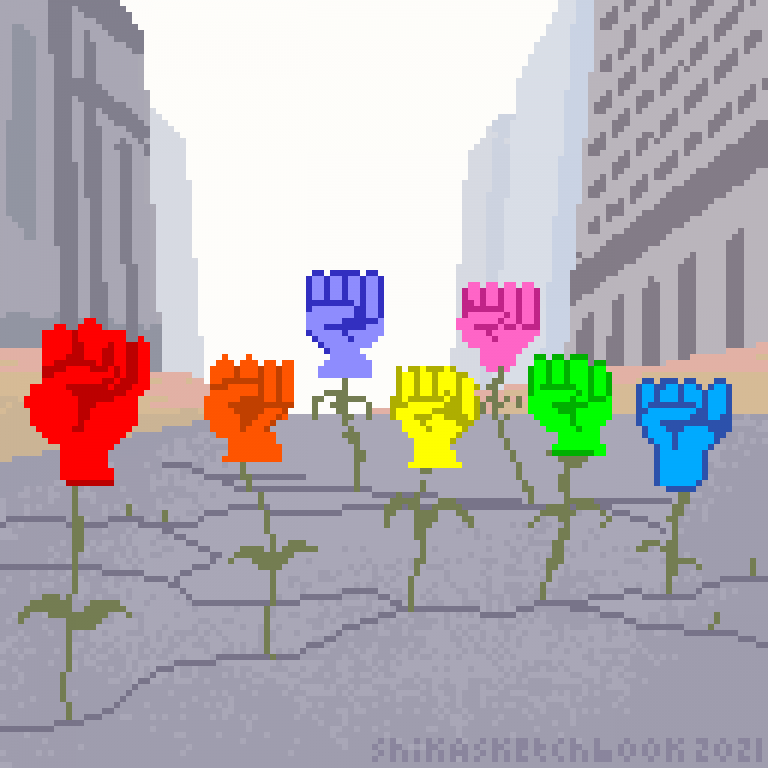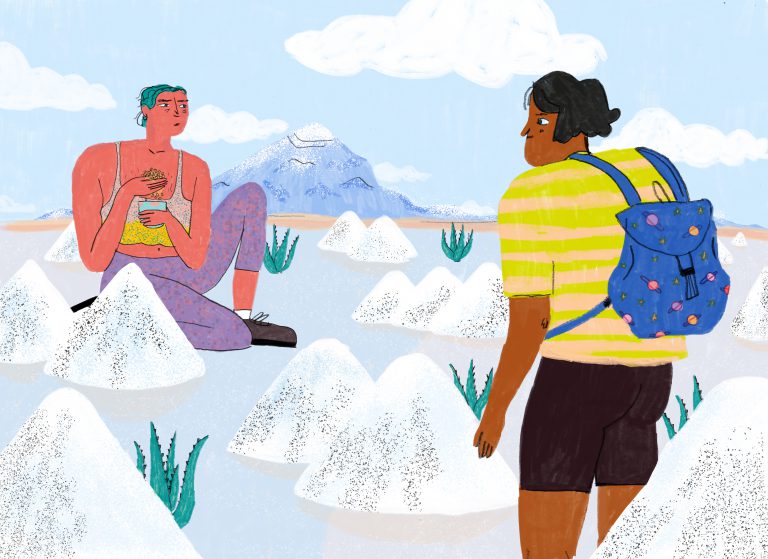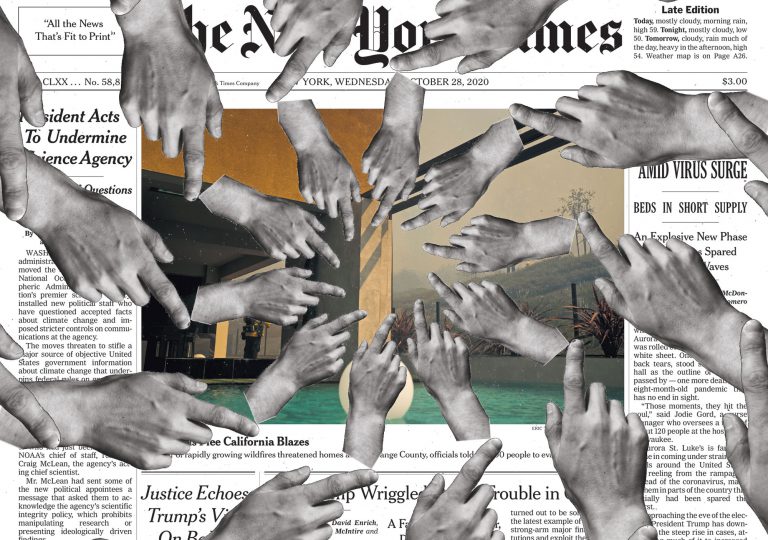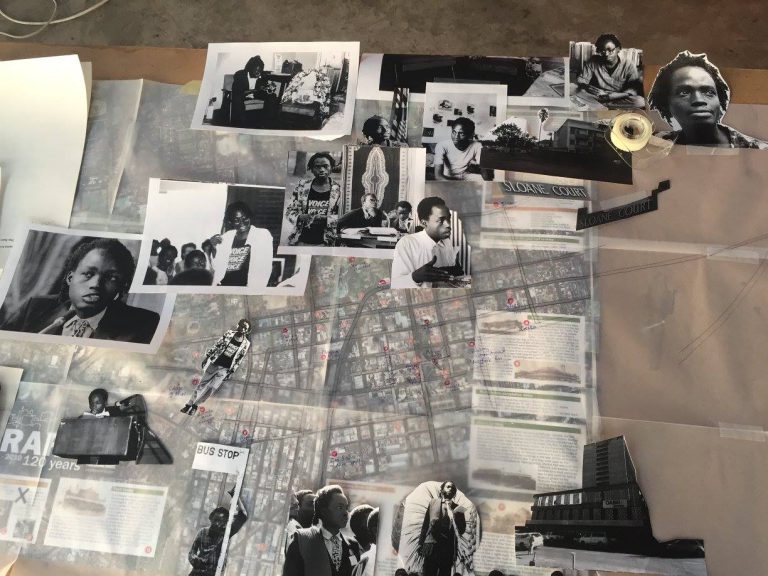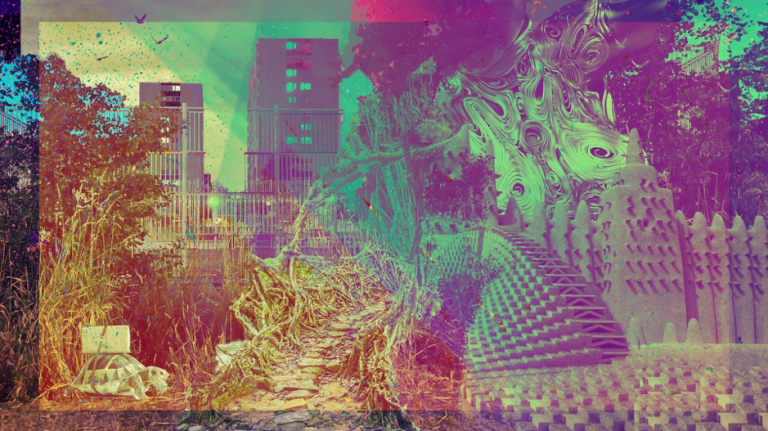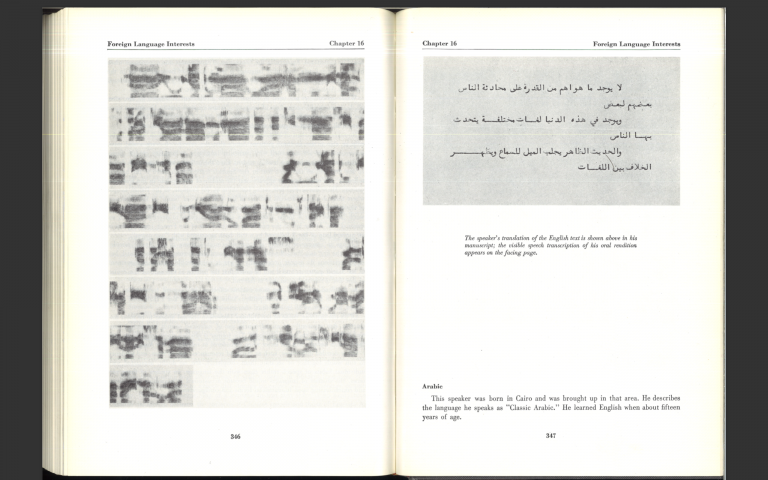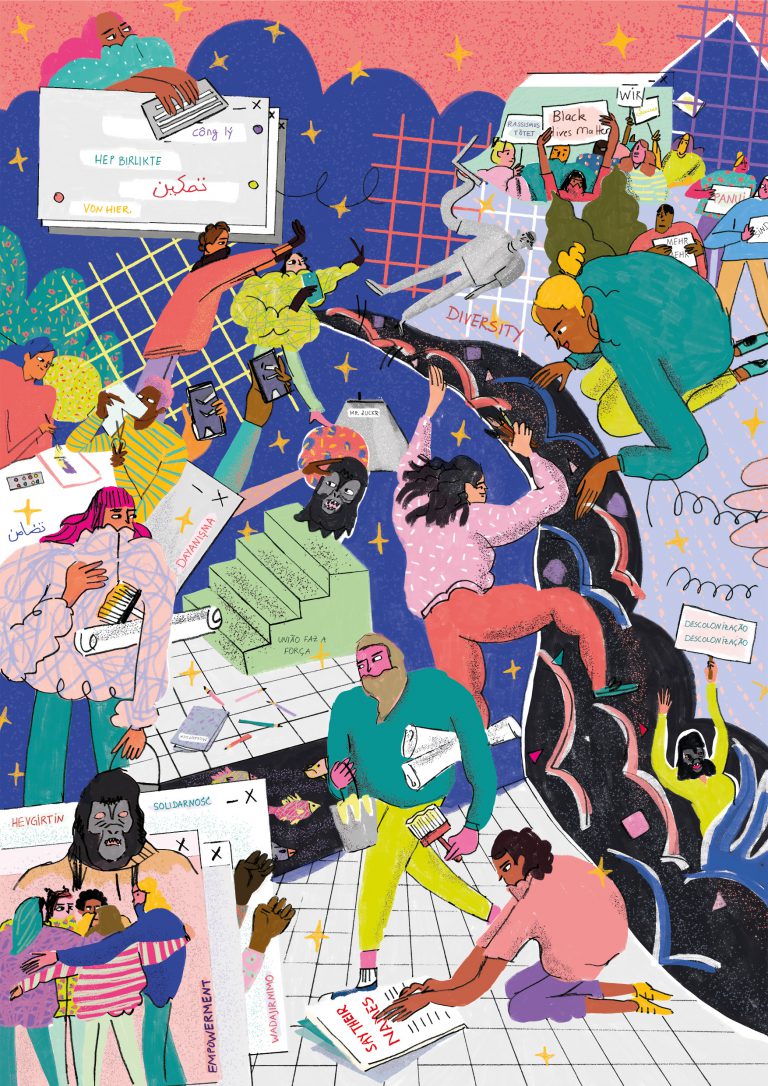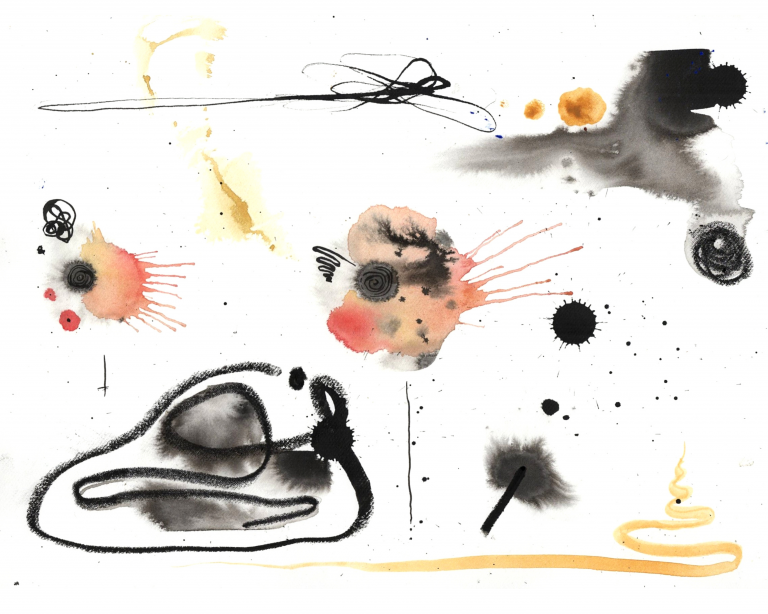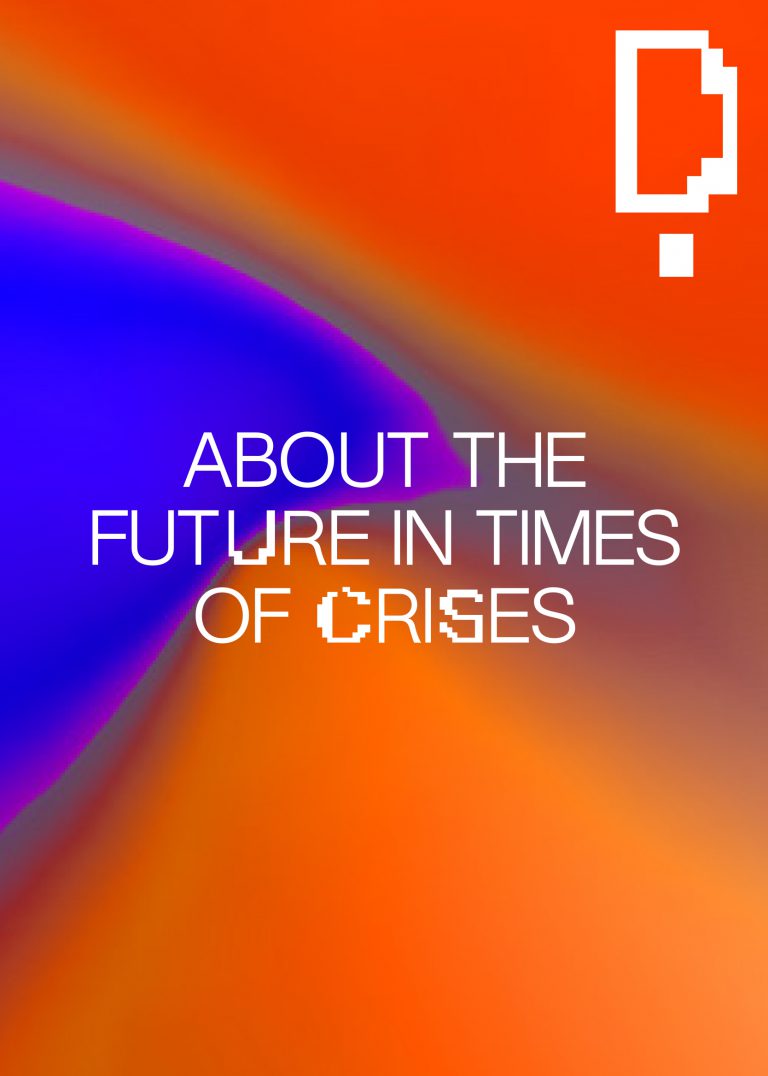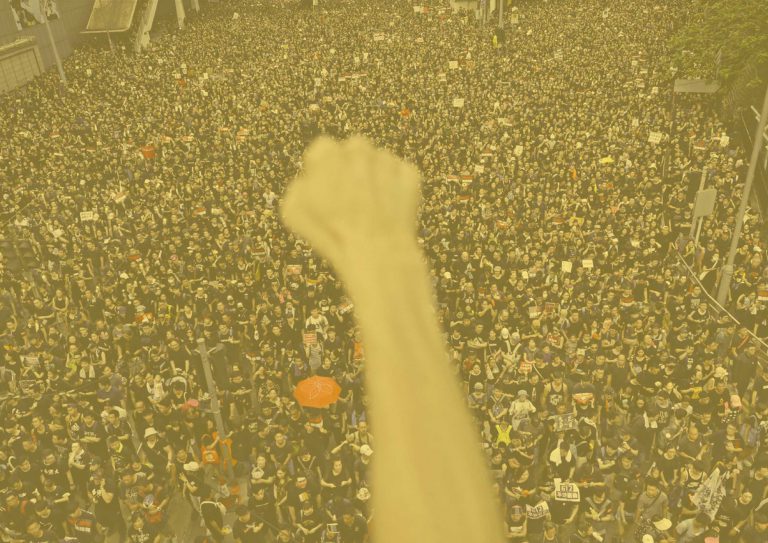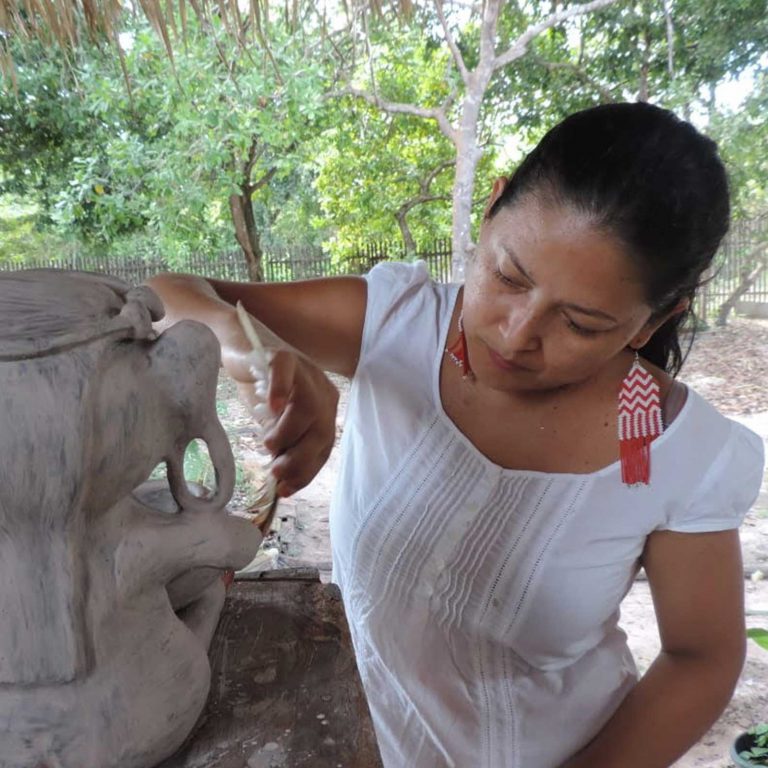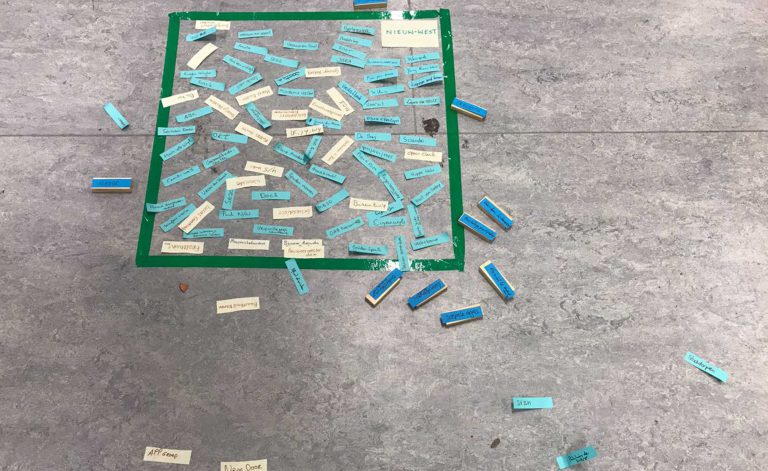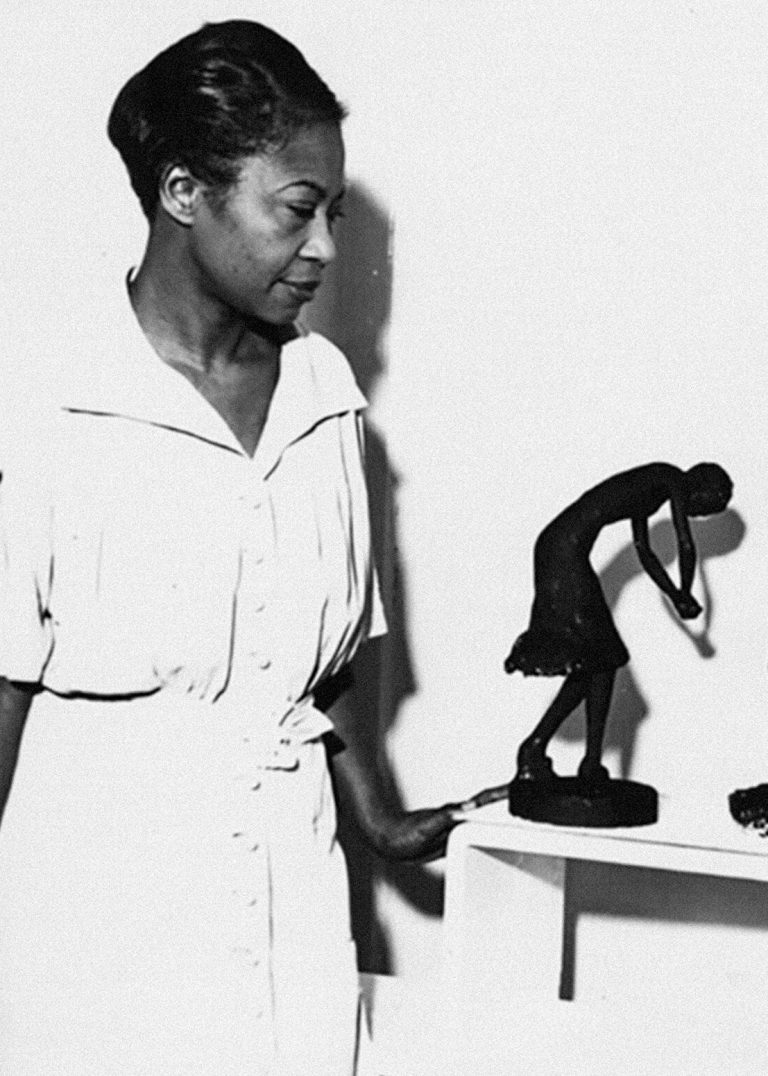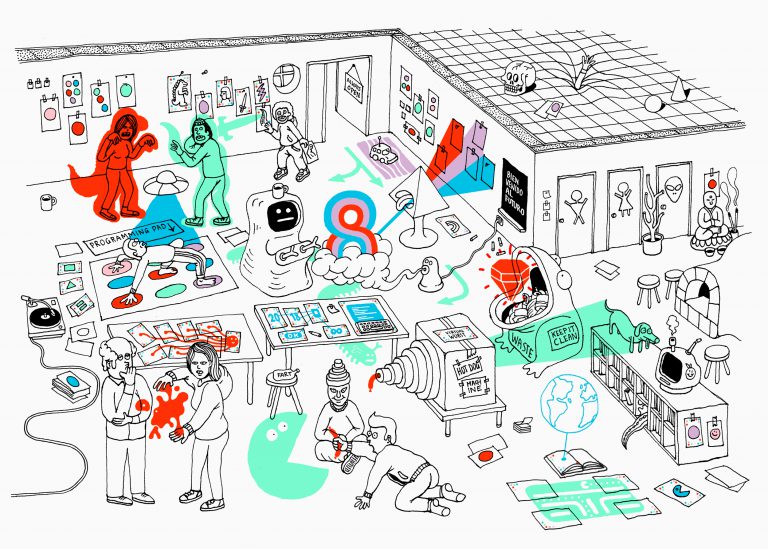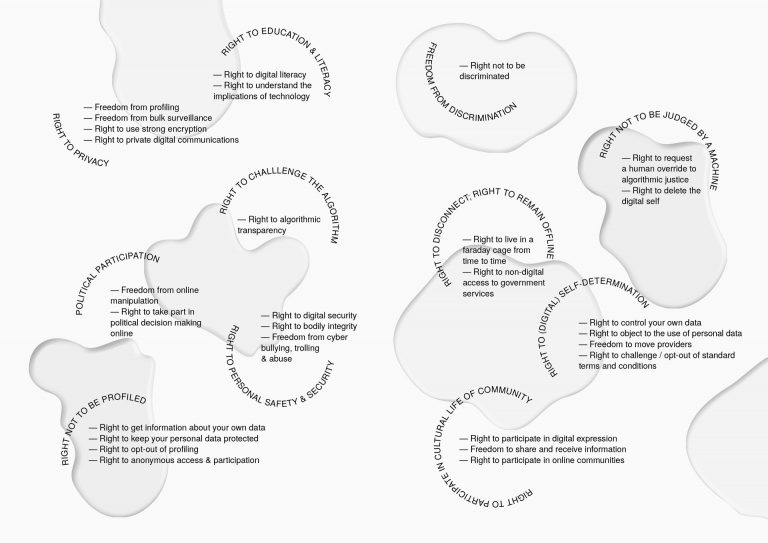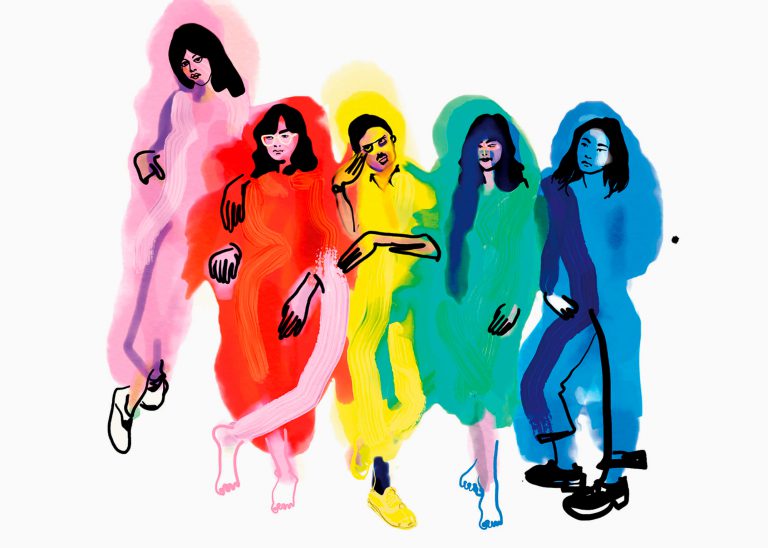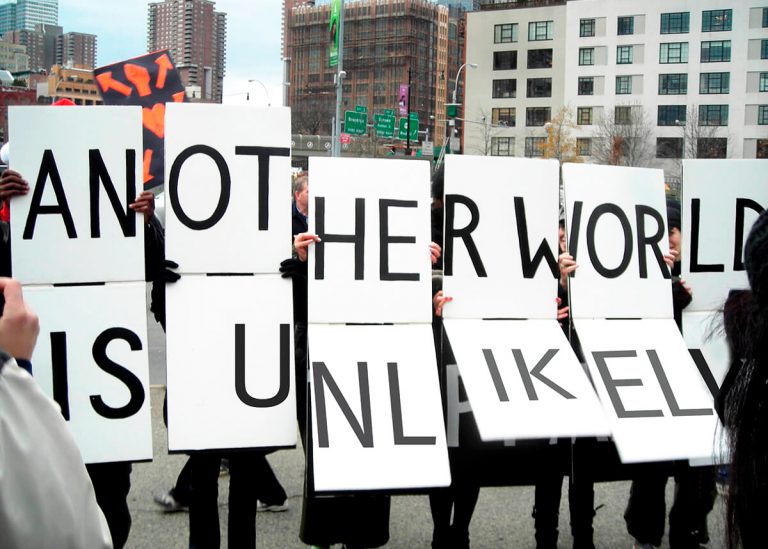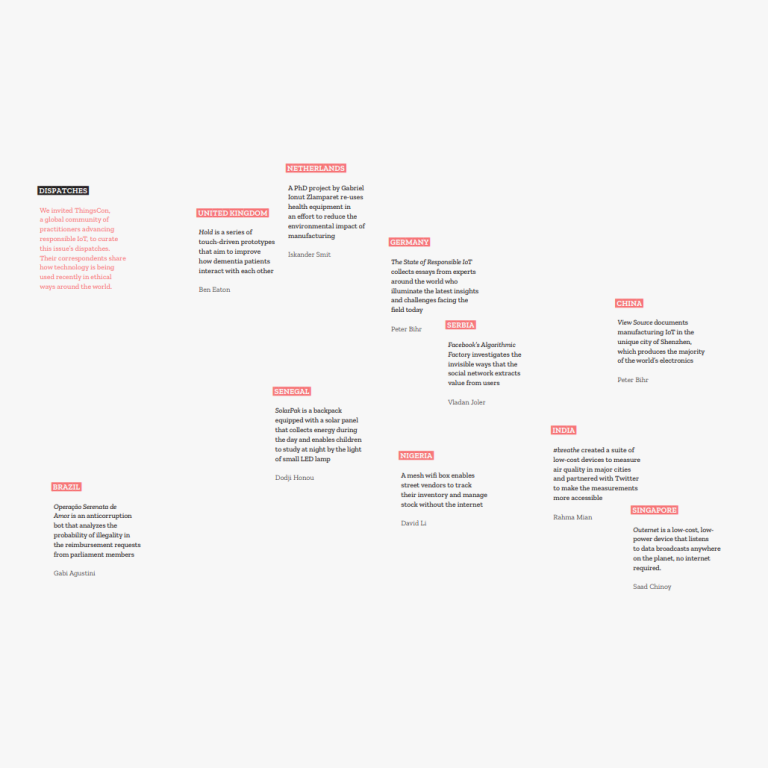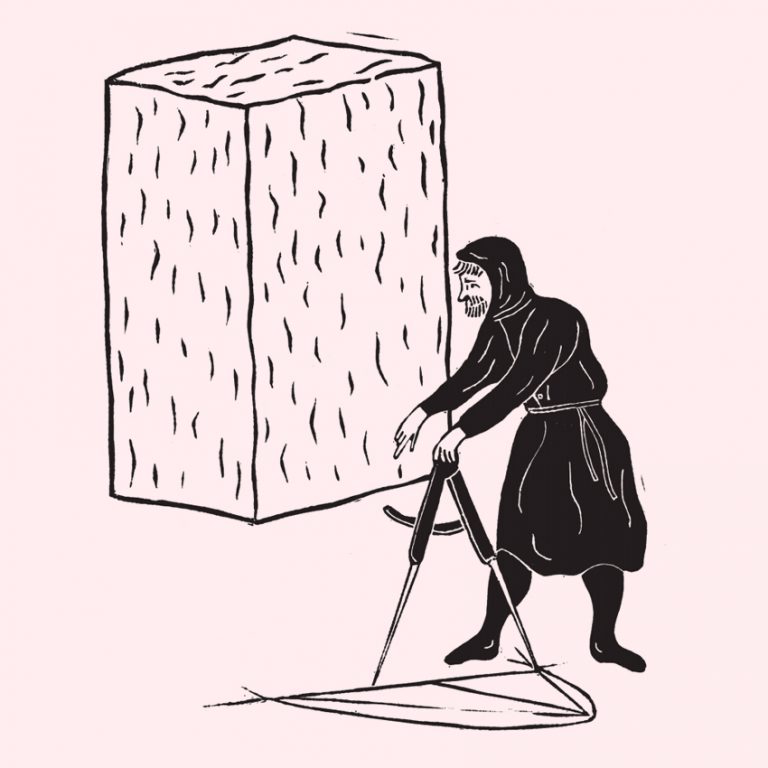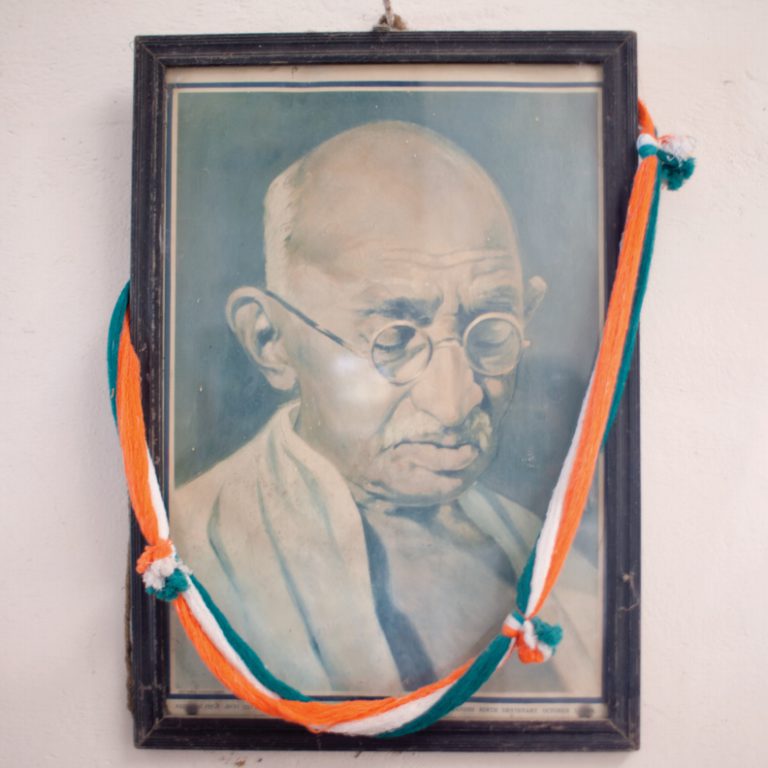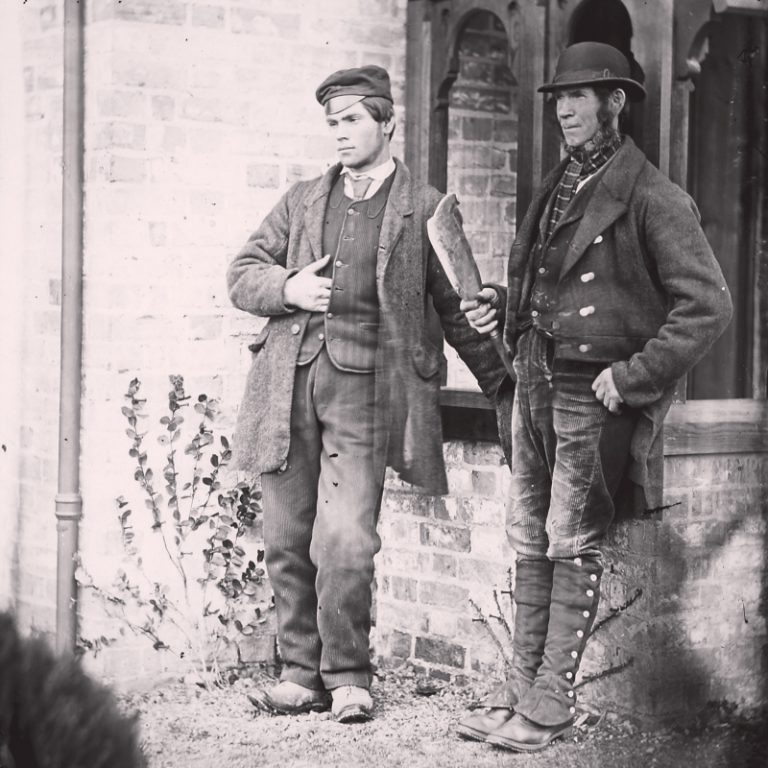We are told that to understand time travel requires, among other things, a strong grasp of the theories of relativity, and to experience it we need, at the very least, some sort of machine. However, we also have a low-tech pathway available to us – sleep. This physiological technology, the original time machine, brings us closest to the true nature of time and time travel because, among other things, time is a subjective bodily experience, a fabric with which we adorn ourselves. And just as time can be a deeply physical experience, so too can time travel – a repertoire of bodily happenings that materializes a concept into a visceral, subjective reality.
At any given moment, human beings experience multiple temporal realities together in their bodies, including the heartbeat, the menstrual cycle, the circadian rhythm and ageing. The temporal tangle they create together, their ways of intersecting, create the infrastructure of our existence, our fabrics. However, when one of these temporal experiences falls out of rhythm, we are forced into being out of time. It is here we see that time travel is experienced by those who most need it – not as lighthearted temporal tourism (the risks are simply too high) but as a practice to be embarked on by those who have fallen out of time. Let us elucidate.
The main reason for falling out of time is trauma: traumatic experiences engineer flashbacks and other forms of chronic sickness, many of which can become intergenerational. Femme people, disabled people, queer and trans folks, Black and brown people, indigenous people – populations upon whose deaths and historical erasure stands the basis of the colonial clock that now marks the progress of the world – are all out of time. They survive, despite being cannon fodder, their exploitation being the main ingredient for the persistence of colonial extractive capitalism. And as we survive, we are reminded constantly that we are out of time.
Given that time travel is not the easiest of practices, given that it is engineered from the deep pain of impending death or erasure, of being out of time, out of body; given it is the stuff of making dreams come alive, it demands a particularly strong basic ingredient – the primal erotic instinct for survival. While the secret motor of time travel could be simplified to the state of love, it is somewhat wilder, bleeding, leaking and sticky. In the context of the revolution, it is the untamed political relationality of comradeship. Comrades are not lovers – nor family, nor sisters, nor people with whom we have socially mandated relationality. Simply put, a comrade is someone with whom we share timespace – that is the only condition of intimacy. It is the sticky, leaky business of being intimate because of a shared dream. Perhaps there is nothing else in common in this timeline, but everything in the incumbent revolution. By believing in us, by being accomplices to our survival and our vision, comrades bring us into being. Comradeship is part of the visceral infrastructure of revolutionary time, that flashes through the “empty homogenous time”¹ of capitalist progress that has rendered us nonexistent. Comrades give us a reason to want to stay alive, to want to fight.
It is convenient to believe that time travel is mere fantasy, when one has not experienced being out of time or felt the intense survival instinct of needing to be in rhythm, in presence, in one’s body. For us, the chronically sick, time travel is not the imagined tourism of hopping through the Paleolithic era, observing the Pyramids under construction, meeting our descendants in flying cars, all through the wide-eyed techno-capitalist self-actualization of colonial science fiction authors. For us, it is survival.
